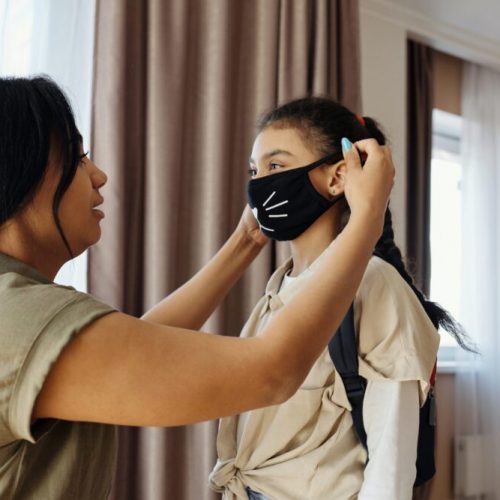

Unit 15 :
“Better Safe than Sorry”
![]() Upper Intermediate
Upper Intermediate
Objective
To be able to know more about idioms and expressions.
Vocabulary
Read and know the meaning of the words used in the article.
1. embark /ɪmˈbɑːrk/
to go onto a ship
We embarked at Liverpool for New York.
2. admonition /ˌæd.məˈnɪʃ.ən/
a piece of advice that is also a warning to someone about their behaviour
The most common parental admonition must surely be “Don’t stay out late”.
3. skid /skɪd/
(especially of a vehicle) to slide along a surface so that you have no control
Tony’s car skidded on some ice and hit a tree.
4. provoke /prəˈvəʊk/
to cause a reaction, especially a negative one
The prospect of increased prices has already provoked an outcry.
5. unconscious /ʌnˈkɑːn.ʃəs/
in the state of not being awake and not aware of things around you, especially as the result of a head injury
She was hit on the head by a stone and knocked unconscious.
6. depressed /dɪˈprest/
unhappy and without hope
She was on tranquilizers for a long time after her son died.
Quick Reading
Read the short passage.
This proverb means that it is always better to refrain from taking rash decisions.
Every situation needs to be looked into and analyzed before embarking on a plan of action.
Even if it is time consuming it is better to be safe than to get into dangerous situations / trouble which make you feel sorry later.
Sharad was a fun loving teenager who loved adventures and challenges. He was well trained in martial arts and was considered a dare-devil by many.
He often undertook dangerous assignments as challenges, having his parents worry about his safety all the time.
He was especially fond of riding his bike at great speed which often left onlookers stunned and gaping open-mouthed. His college authorities warned him several times saying that he was becoming a bad example to other students who were trying to ape his rash driving.
Sharad laughed away all the admonitions by saying that he was always in perfect control of his bike and confident of his capabilities.
Of late Sharad had been practicing to ride his bike on a single wheel. He had skidded and fallen down several times hurting himself badly in the process.
Since he had set his mind on achieving the feat, he refused to listen to anyone’s advice. His friends felt very proud about his adventurous nature and always encouraged him instead of cautioning him.
One day Sharad was provoked to ride his bike on a single wheel by a few college students inside the college campus and he immediately took up the challenge.
A few well meaning students tried to stop him saying that it was too dangerous to carry out since the roads were not in good condition. Sharad refused to listen and got his bike out ready for the act.
The road was cleared and Sharad was getting ready at the far end of the road to begin his act when a few students noticed an oil spill on the road. By the time they could shout a warning to Sharad.
He was already speeding down the road. As he tried to lift the front wheel his back wheel traveled over the oil-spill and his bike skidded sending Sharad flying across the road. As people ran across to help him, Sharad lay still in an unconscious state.
He was rushed to hospital where the doctors pronounced that he had injured his spine so badly that he would never again be able to walk. It was a great blow to Sharad and everyone dear to him.
Sharad felt terribly depressed and sorry for himself. It was then that he realized that his foolishness in not observing safety warnings had cost him his future.
He understood that it was always better to be safe than sorry.
Discussion
Answer the questions with your teacher.
- What do you understand from the proverb “better safe than sorry”?
- What was the story all about?
Discussion for you
Answer the questions with your teacher.
- What is the moral lesson that you can learn from the story you’ve read?
- Do you agree with the proverb? Cite an example situation where you can apply this proverb.



